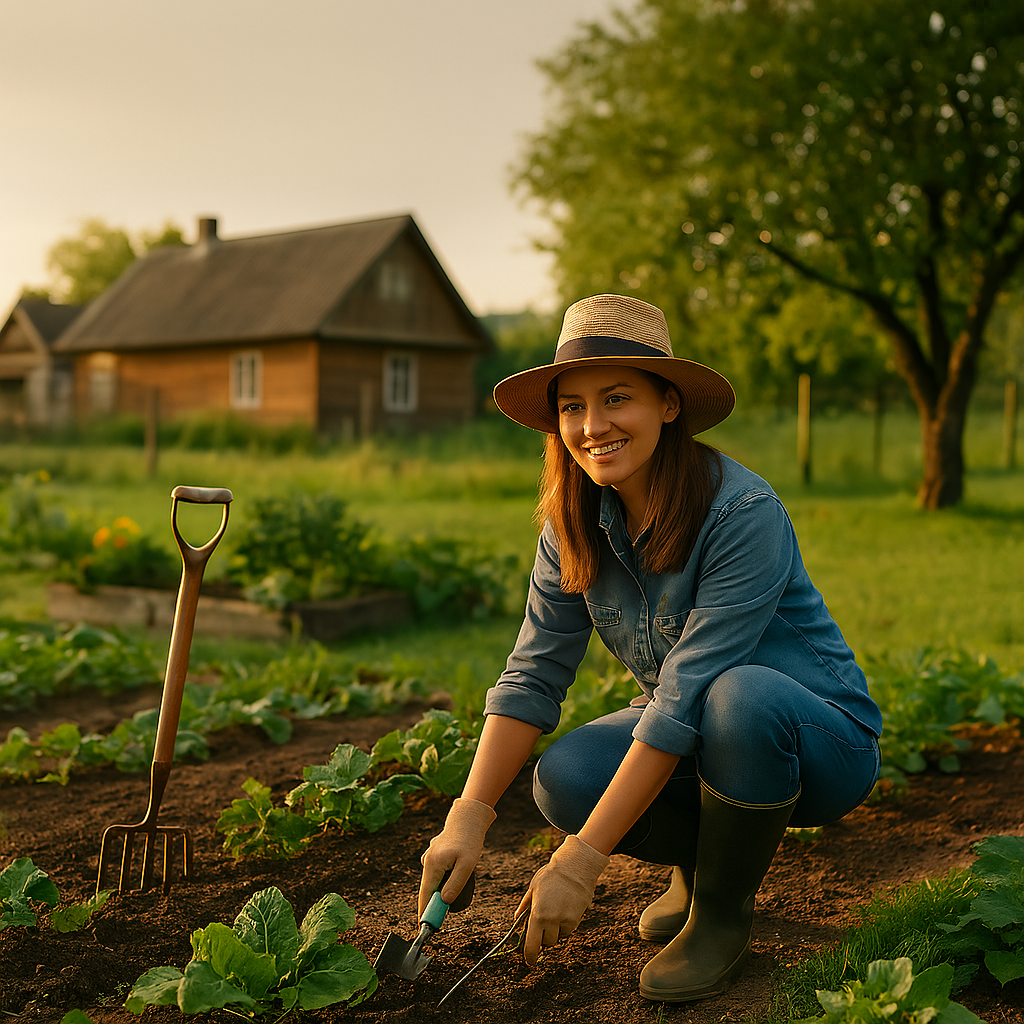
Rural Gardening: Growing with Nature Right at Home
Whether you’re planting for food or fun, with rural gardening you can work with the land, not against it. Living in the countryside has its perks—wide open spaces, fresh air, and a great place to grow your own garden.
Why Garden in Rural Areas?
You might already have plenty of land around you, but even a small patch by your home can become a garden. Here’s why it’s worth doing:
- Fresh Food at Your Fingertips
Homegrown vegetables and herbs taste better and save money on groceries. - A Peaceful Hobby
Gardening gets you outside and moving. It’s calming and rewarding—great for mental health. - Supports Local bird life, and is a great place to visit for other little critters like butterflies and bees.
Planting flowers, shrubs, and native trees can give bees, birds, and butterflies a place to visit.
Getting Started is Simple
You don’t need fancy tools or expensive seeds. Just start with what you have.
- Pick a Spot
Choose a sunny space that’s easy to reach with water. Close to your house is best so it’s easy to check on. - Start Small
Begin with a few vegetables (like carrots, lettuce, or tomatoes) or flowers that grow well in your area. You can always expand later. - Use What You’ve Got
Old buckets, fence posts, or even gumboots can be turned into garden containers. Rural gardening often means getting creative! - Compost and Mulch
Use food scraps, animal manure, and leaves to make your own compost. It feeds your soil and reduces waste. A layer of mulch keeps moisture in and weeds out. - Think Long-Term
Plant a few fruit trees or perennials (plants that come back every year) like rhubarb or lavender. Over time, your garden will grow with you. Check our blogpost on organic gardening
Tips for Success
- Water early in the morning or late in the afternoon to save water.
- Keep an eye on the weather—too much rain or wind can affect your plants.
- Write down what works and what doesn’t. Each season teaches you something new.
- For more helpful tips and seasonal garden planning tools, visit GrowVeg, a global resource for home gardeners.
Gardening the Rural Way
In rural areas, gardening often becomes more than just a hobby—it’s part of daily life. You grow food, care for the land, and maybe even share extra veggies with neighbors. It’s about living close to nature and making the most of what’s around you.
